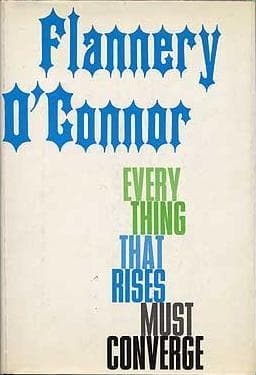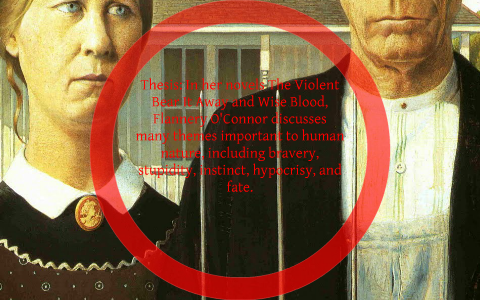| 'The Barber' | |
|---|---|
| Author | Flannery O'Connor |
| Country | United States |
| Language | English |
| Genre(s) | Southern Gothic |
| Published in | New Signatures |
| Publication type | Book |
| Publisher | James A. Decker |
| Publication date | 1948 |
'The Barber' is an early short story by the American author Flannery O'Connor. It is one of the six stories included in O'Connor's 1947 master's thesis The Geranium: A Collection of Short Stories and was first published in New Signatures I: A Selection of College Writing in 1948. It later appeared in the 1971 collection The Complete Stories. The story involves a professor who feels a need to explain his liberal political views to a conservative barbershop.[1]
References[edit]
- ^Richard Giannone, Flannery O'Connor, hermit novelist (University of Illinois Press, 2000)
Feb 27, 2021 One of Flannery O'Connor's short stories involving a professor who feels a need to explain his liberal political views to a conservative barbershop. Flannery O’Connor takes your latest Facebook fight and places it in a 1940s barber shop. Important information about Flannery O’Connor's background, historical events that influenced Everything That Rises Must Converge, and the main ideas within the work. Jan 14, 2015 The Barber By:Flannery O'Connor Loss and exile is demonstrated in the story when Rayber realizes he has convinced no one to vote for Darmon, he then feels at a loss because he thought his speech was very good. Also it shows that Rayber thought that his morality would trump.

In this next short story by Flannery O’Connor, the narrator brings us into a barber shop, where two (and more) men, discuss who they will vote for in “the Democratic White Primary” (p. 15)
Jan 17, 2018 Flannery O’Connor takes your latest Facebook fight and places it in a 1940s barber shop. It’s one of her grad school stories, and you can see that it’s tentative in places where a decade later she would kick in the door. (Rayber punches the barber in the final scene? The Violent Bear It Away is a 1960 novel by American author Flannery O'Connor.It is the second and final novel that she published. The first chapter was originally published as the story 'You Can't Be Any Poorer Than Dead' in the journal New World Writing. The novel tells the story of Francis Marion Tarwater, a fourteen-year-old boy who is trying to escape the destiny his uncle has prescribed.
Our main character, Rayber, wants to vote for Darmon, the candidate that supports African American equality. On the other side, Joe, the Barber, wants to vote for Hawkson, a man directly opposed to the rights of African Americans.


This whole story narrates the three visits to the barber shop that Rayber makes (to get shaved). They discuss politics all three times. Before the last visit, Rayber prepares an argument, reasons to vote for Darmon.

We see Raybor read this argument to his philosophical friend, Jacobs, a student.
In the afternoon he took it around to Jacob’s office. Blakeley was there but he left. Rayber read the paper to Jacobs.
“Well,” Jacobs said, “so what? What do you call yourself doing?” He had been jotting figures down on a record sheet all the time Rayber was reading.
Rayber wondered if he were busy. “Defending myself against barbers,” he said. “You ever tried to argue with a barber?”
“I never argue,” Jacobs said.
“That’s because you don’t know this kind of ignorance,” Rayber explained. “You’ve never experienced it.”
Jacobs snorted. “Oh yes I have,” he said.
“What happened?”
“I never argue.”
“But you know you’re right,” Rayber persisted.
“I never argue.” (pp. 21-22)
The Barber Flannery O'connor Analysis

The Barber Flannery O'connor
Rayber is trying to argue with these barbers, and this desire seems devoid of any sort of care or compassion. It is polemic, attacking, selfish. But we agree with Rayber on the mere facts of politics (hopefully, right?). Nevertheless, we don’t agree with his tactics. He has right meaning but wrong manner. We see him “argue” in the last two pages of the story.
Cached
Rayber felt as if he were fighting his way out of a net. They were over him with their red faces grinning. He heard the words drag out – “Well, the way I see it, men elect…” He felt them pull out of his mouth like freight cars, jangling, backing up on each other, grating to a halt, sliding, clinching back, jarring, and then suddenly stopping as roughly as they had begun. It was over. Rayber was jarred that it was over so soon. For a second – as if they were expecting him to go on – no one said anything. (p. 24)
The men are completely unaffected by Rayber’s speech. Even though arguments are helpful. And it’s not as if an argument has never persuaded someone. However, it is worthless to expect an argument to be able to change someone’s mind. Arguments can, but don’t always affect people. And Rayber does all of this without much sense of compassion. That is what I find missing. If only Rayber could have loved Joe, Roy, and the others in their racism, with the hopes of bringing them out of that wrong thinking. But that is not how Rayber approaches the situation.